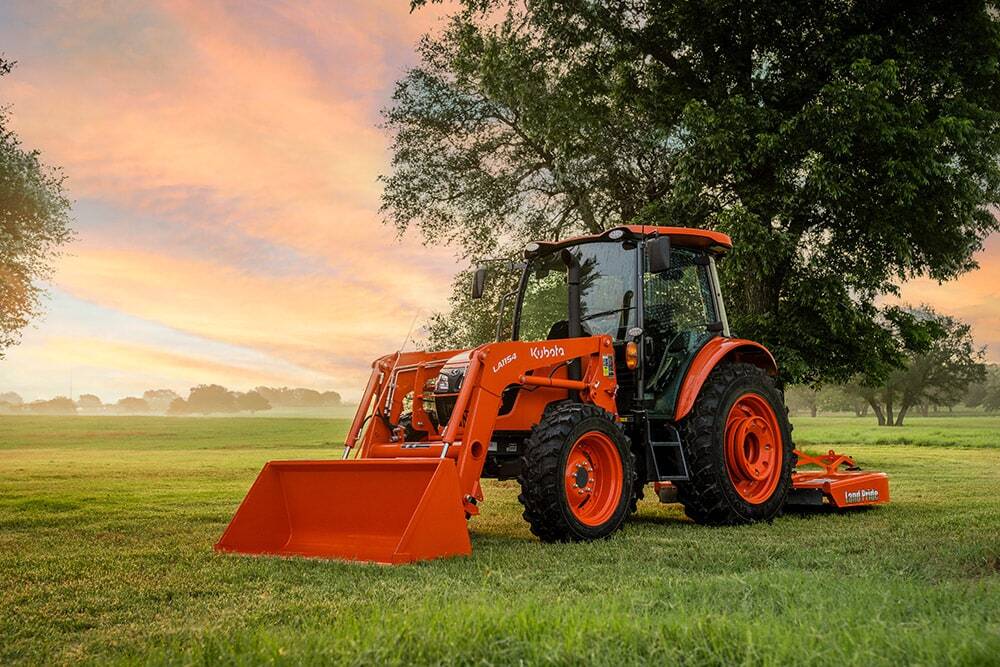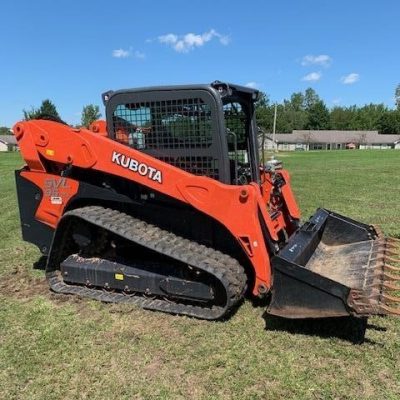Your tractor is the backbone of your farming operation. When it breaks down, your entire schedule comes to a halt, costing you precious time and money. Understanding common tractor problems and their solutions can save you from costly repairs and unexpected downtime.
This comprehensive guide covers the most frequent tractor issues you’ll encounter, from engine troubles to hydraulic failures. You’ll learn how to diagnose problems early, implement effective solutions, and maintain your equipment for peak performance. Whether you’re running a Kubota compact tractor or managing a fleet of larger machines, these insights will keep your operation running smoothly.
Engine Problems: The Heart of Your Tractor
Engine issues are among the most serious problems you’ll face with your tractor. Recognizing the warning signs early can prevent catastrophic failures that could sideline your equipment for weeks.
Overheating Issues
Overheating is one of the most common engine problems affecting tractors. Your engine temperature gauge should never venture into the red zone, as this indicates potential damage to critical components.
Common causes of overheating include:
- Clogged radiator fins with debris, dirt, or chaff
- Low coolant levels due to leaks or evaporation
- A faulty thermostat is preventing proper coolant circulation
- A worn water pump impeller reduces coolant flow
- Blocked air passages restrict airflow to the radiator
Solution: Start by checking coolant levels and topping off if necessary. Clean the radiator thoroughly with compressed air or water, working from the engine side outward. If overheating persists, test the thermostat by removing it and placing it in hot water to verify it opens at the correct temperature. Replace worn water pumps immediately, as they’re critical for engine cooling.
Starting Problems 
Nothing frustrates farmers more than a tractor that won’t start when work needs to be done. Starting issues often stem from electrical or fuel system problems.
Key troubleshooting steps include:
- Check battery voltage and connections for corrosion
- Inspect fuel filters for clogs or contamination
- Verify fuel pump operation and pressure
- Test glow plugs on diesel engines
- Examine starter motor and solenoid connections
Solution: Begin with the simplest checks first. Clean corroded battery terminals and ensure tight connections. Replace fuel filters regularly, especially during busy seasons. For diesel engines, glow plug failure is common in cold weather. Test each glow plug’s resistance and replace faulty units. If your Kubota tractor has starting issues, check the fuel shut-off solenoid, which commonly fails on these models.
Unusual Engine Noises
Strange sounds from your engine should never be ignored. Different noises indicate specific problems that require immediate attention.
- Knocking sounds: Often indicate worn bearings or connecting rods
- Grinding noises: Usually point to starter motor or flywheel problems
- Whistling sounds: May suggest turbocharger issues or air leaks
- Rattling: Could indicate loose components or worn timing chains
Solution: Stop the operation immediately when you hear unusual noises. Continuing to run the engine can cause extensive damage. Have a qualified technician diagnose the source of the noise. Many engine noises indicate internal wear that requires professional repair.
Hydraulic System Failures: Power and Performance Issues
Hydraulic systems power many of your tractor’s most important functions, from loader operation to three-point hitch control. When hydraulic problems occur, your productivity drops significantly.
Hydraulic Fluid Leaks
Hydraulic leaks are among the most common issues affecting tractor performance. Even small leaks can lead to significant fluid loss and system pressure problems.
Common leak sources include:
- Worn hydraulic hoses and fittings
- Damaged cylinder seals
- Loose connections at pumps and valves
- Cracked reservoir tanks
- Worn O-rings and gaskets
Solution: Inspect your hydraulic system regularly for wet spots or fluid puddles. Replace worn hoses before they fail. Tighten loose fittings, but avoid over-tightening, which can damage threads. Keep spare hydraulic fluid on hand for quick top-offs. For Kubota tractors, pay special attention to loader cylinder seals, which commonly wear due to heavy use.
Loss of Hydraulic Pressure
Reduced hydraulic pressure affects implement operation and can indicate serious system problems. Your three-point hitch may lift slowly, or your loader may lack the power to handle normal loads.
Pressure loss typically results from:
- Worn hydraulic pump components
- Internal valve leakage
- Contaminated hydraulic fluid
- Clogged hydraulic filters
- Air in the hydraulic system
Solution: Check hydraulic fluid levels and condition first. Dark, thick fluid indicates contamination and should be replaced immediately. Replace hydraulic filters according to the manufacturer’s recommendations. Bleed air from the system by operating cylinders through their full range of motion. If pressure problems persist, have your hydraulic pump tested by a professional.
Transmission Troubles: Keeping Power Connected
Your tractor’s transmission transfers engine power to the wheels and implements. Transmission problems can strand you in the field and require expensive repairs if not addressed promptly.
Slipping Gears
Gear slipping occurs when the transmission can’t maintain proper engagement under load. This dangerous condition can leave you without power when you need it most.
Signs of transmission slipping include:
- Engine RPM increases without a corresponding speed increase
- Difficulty maintaining speed on inclines
- Jerky or erratic movement
- Unusual noises during gear changes
Solution: Check transmission fluid levels and condition immediately. Low fluid levels cause slipping and can damage internal components. Replace worn clutch discs and pressure plates as needed. For hydrostatic transmissions common in Kubota compact tractors, check drive belt tension and replace worn belts. Avoid operating with slipping gears, as this can cause extensive internal damage.
Difficulty Shifting
Hard shifting or gears that won’t engage properly indicate transmission problems that require immediate attention.
Common causes include:
- Worn synchronizers in manual transmissions
- Damaged shift forks or collars
- Incorrect clutch adjustment
- Contaminated transmission fluid
- Worn linkage components
Solution: Ensure proper clutch adjustment and operation. Replace transmission fluid if it’s contaminated or hasn’t been changed according to schedule. Lubricate shift linkages and replace worn components. For persistent shifting problems, consult a transmission specialist, as internal repairs may be necessary.
Tire Maintenance: Your Connection to the Ground
Proper tire maintenance ensures optimal traction, fuel efficiency, and equipment stability. Neglecting tire care can lead to premature wear and reduced performance.
Tire Pressure Management
Maintaining correct tire pressure is crucial for tractor performance and tire longevity. Both under-inflation and over-inflation cause problems that affect your operation.
Under-inflation effects:
- Increased fuel consumption
- Excessive sidewall wear
- Reduced load capacity
- Poor handling and stability
Over-inflation effects:
- Decreased traction
- Harsh ride quality
- Increased center wear
- Higher risk of impact damage
Solution: Check tire pressure weekly using an accurate gauge. Adjust pressure according to the manufacturer’s specifications for your load and operating conditions. Consider investing in a tire pressure monitoring system for valuable equipment. For Kubota tractors, maintain pressures within the recommended range printed on the tire sidewall or in your operator’s manual.
Tire Wear Patterns
Unusual tire wear patterns indicate mechanical problems that require attention. Regular inspection can identify issues before they become expensive repairs.
Common wear patterns and their causes:
- Center wear: Over-inflation or excessive speed
- Shoulder wear: Under-inflation or overloading
- Cupping: Worn suspension components or imbalanced wheels
- Heel-and-toe wear: Misalignment or worn steering components
Solution: Rotate tires regularly to ensure even wear. Address alignment issues immediately to prevent premature tire replacement. Replace worn suspension components that cause irregular wear patterns. Keep detailed records of tire wear to identify recurring problems.
Preventative Maintenance: Your Best Defense
Preventive maintenance is the most cost-effective way to avoid common tractor problems. Regular service intervals keep your equipment running efficiently and extend its operational life.
Daily Maintenance Tasks
Start each day with a quick inspection that can prevent major problems:
- Check engine oil level and condition
- Inspect coolant levels and hoses
- Verify hydraulic fluid levels
- Examine tires for damage or low pressure
- Test all lights and safety equipment
- Lubricate grease fittings as needed
Weekly Maintenance Schedule
Dedicate time each week to more thorough maintenance tasks:
- Clean the air filter or replace it if heavily contaminated
- Check battery terminals and the charging system
- Inspect belts for wear, cracking, or proper tension
- Examine hydraulic hoses for leaks or damage
- Test all hydraulic functions under load
- Check tire pressure and adjust as needed
Seasonal Maintenance Programs
Comprehensive seasonal maintenance prevents problems during busy periods:
Spring preparation:
- Change the engine oil and filter
- Replace fuel filters and drain water separators
- Service air conditioning systems
- Inspect and repair any winter damage
- Test all implemented connections
Fall maintenance:
- Prepare for winter storage
- Change the hydraulic fluid and filters
- Service cooling system with proper antifreeze
- Lubricate all fittings thoroughly
- Store equipment in dry, covered areas
Maximize Your Tractor’s Performance and Longevity
Understanding common tractor problems and their solutions puts you in control of your equipment’s performance. Regular maintenance, prompt attention to warning signs, and proper operating procedures will keep your tractor running efficiently for years to come.
Don’t wait for problems to develop into expensive repairs. Implement a comprehensive maintenance program today and track your equipment’s performance over time. Your Kubota tractor, like any quality machine, will reward proper care with reliable service and optimal performance.
Remember that some repairs require professional expertise. When in doubt, consult qualified technicians who understand your specific equipment. The cost of professional service is always less than the price of catastrophic failure during critical farming operations.
Take action now: schedule your next maintenance service, order necessary filters and fluids, and commit to regular equipment inspections. Your farming operation depends on reliable equipment, and reliable equipment depends on your commitment to proper maintenance.







